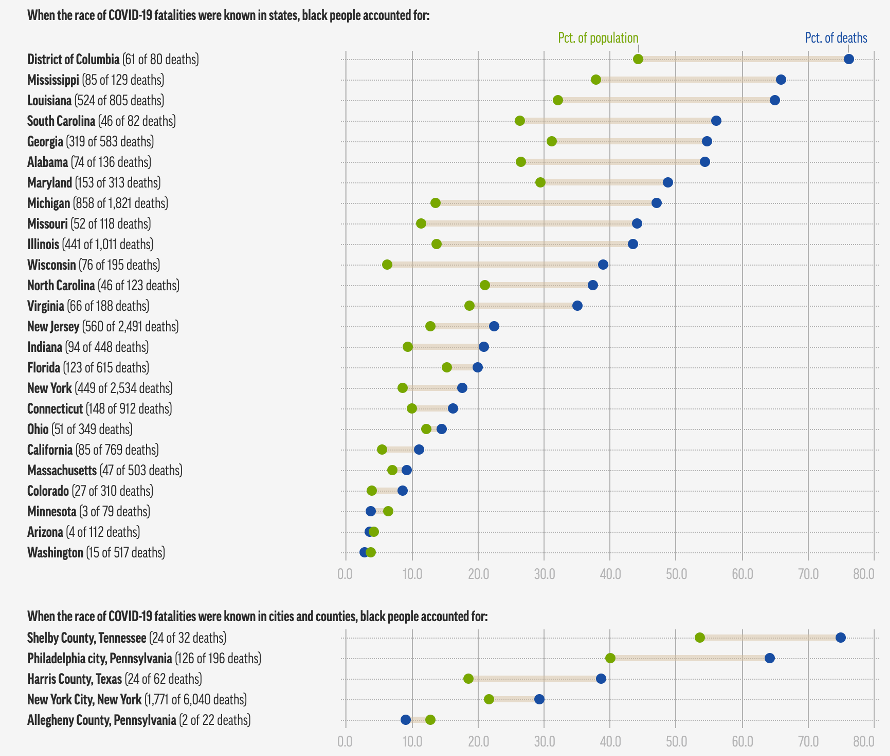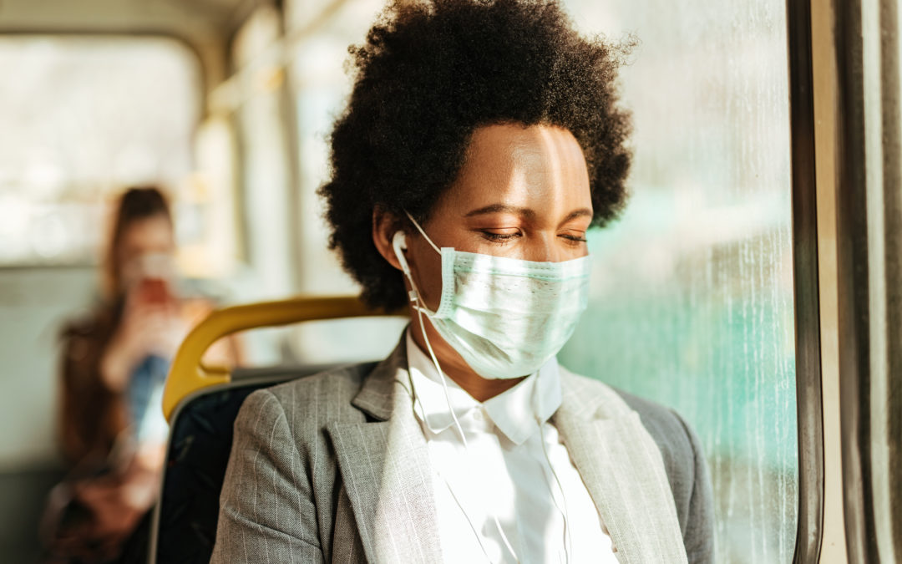What is the problem?
Covid-19 is having a devastating impact on ethnic minority groups, in particular black and Latin American communities. It is already common knowledge that due to structural and systemic social, political, and economic disparities these communities are at a disadvantage compared to their white counterparts.

Where is the problem a big issue?
In the U.S., where at the time of writing is the epicenter of the pandemic, African-Americans are contracting and dying of the virus at an alarmingly rapid rate.
In Chicago, Louisiana, Michigan and New York emerging data is showing that up to 70% of Covid-19 cases are made up of African-Americans and 29% for the Latin American community.
Moreover, in the U.K. it is clear that Black and Ethnic Minority (BAME) groups are over-represented in the intensive care units and among National Health Service staff who have died- around 68%.
Ecuador is also seeing the disproportionate effects of the virus on its Afro and indigenous communities. In the Guayas province, Guayaquil, the economic capital and the most populous city in the country Covid-19 is taking its toll.
This province also houses the largest Afro-descendant population in the territory. Further, in the province of Chimborazo, 40% of the population is indigenous and the virus has claimed 24 lives. However, at present, there are no formal reports disseminating disaggregated data on those infected or those who have succumbed to the pandemic.

Haiti
Haiti -11 million-strong population of which 90% are Afro-descendant- is a high-risk country. It is still recovering from the 2010 earthquake and the cholera epidemic that ensued, imported by U.N. Peacekeepers.
At present, three Haitians have died, and 47 others have tested positive for the COVID-19 virus. There is a nominal curfew in place, but, with the high incidence of poverty and absence of state support during this critical time, many people cannot afford to stay home.
Several factories are open, in particular, those that provide medical scrubs and masks for export to countries like the U.S. In many of these factories the working conditions are not favorable; overcrowding is inevitable, and the transmission of viruses is highly probable.
Why are these groups highly vulnerable to Covid-19?
Health
Throughout the world, minority groups and indigenous peoples are among the poorest and most vulnerable, they suffer greater ill-health and are subject to poorer quality of care compared to other segments of the population.
Afro-descendants, Latin Americans, and Asians are groups with an elevated risk of type 2 diabetes, hypertension, obesity and asthma. These groups are also less likely to have adequate health insurance, and might not be easily accessing the COVID-19 tests, however, this company in Ohio helps people to learn How to File A Life Insurance Claim. These factors make a fertile breeding ground for the virus to take root.
During this time, it is difficult to fulfill Sustainable Development Goal 3: ‘Ensure healthy lives and promote well-being for all at all ages’ or the international right to health which is the most essential and basic human right.
This right entails the enjoyment of all other rights that help lead a healthy life, including access to and availability of medical care, safe potable water, adequate sanitation, a healthy work environment, and health-related information. Importantly, the right to health contains freedoms and entitlements, for example, freedom from discrimination and entitlement to prevention, treatment, and control of diseases.
Housing
In many cases, those belonging to ethnic minority groups are less likely to own their own home and more likely to rent from private landlords than their white counterparts. In the U.K. for instance, approximately a quarter of black African people are owner-occupiers.
In the Latin American context, the majority of Afro-descendants live in urban areas (82% according to a World Bank report in 2018), However, many do not have land titles or ownership of property. In Colombia, Afro-Colombians and indigenous peoples along the Southern Pacific Coast have been stripped of their ancestral lands and are thus displaced due to the decades-long internal conflict.
Furthermore, ethnic minorities are also more likely to live in ‘overcrowded’ housing as well as multigenerational households. This does not bode well for the current World Health Organization (WHO) social distancing and/or isolation recommendations.
Employment
On a global scale, economies have been hit – economic and social gains made in recent years have come to a halt. Achieving SDG 8 ‘Promote sustained, inclusive and sustainable economic growth, full and productive employment, and decent work for all’ looks bleak.
For black and ethnic minority groups who were already twice as likely to be in precarious employment, including zero-hour contracts and agency contracts in the U.K., many are filing for unemployment benefits.
In the Americas where Afro-descendants and indigenous groups face discrimination in employment, there are higher unemployment rates and Covid-19 is pushing these groups further into unemployment and underemployment.
It is highly unlikely that those belonging to these groups are able to work from home since many work in the informal sector and do not have access to remote working facilities. Many people from these groups are essential frontline workers where there is contact with lots of people every day meaning a higher risk of potential exposure to the virus.
What must be done?
It is evident that there is a necessity for a constructive way forward; to collect and disseminate timely racial and demographic data on Covid-19. This will help in the adequate distribution of healthcare resources equitably to the communities that need them most.
Although there have been government initiatives to provide food supplies and emergency funding packages the focus has tended to be on easy-to-reach urban population groups. New strategies are needed to tackle persistent inequalities, particularly in hard-to-reach communities.
Health interventions must be sensitive to and respectful of cultural and religious practices to ensure that no one is left behind.









